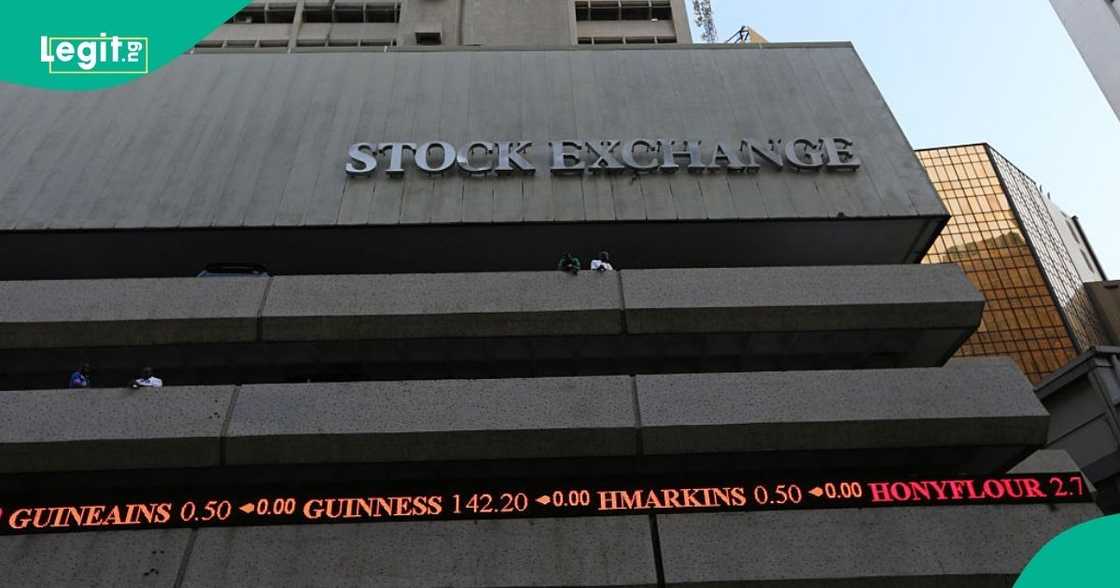The Nigerian stock market faced a challenging day on Wednesday, September 3, reflecting a wider trend of caution among investors across Africa’s major bourses. As trading came to a close, market data revealed notable declines for stakeholders tracking the Nigerian Exchange Limited (NGX) All-Share Index (ASI), sending ripples through financial communities in Nigeria, Ghana, and beyond.
By the session’s end, the NGX All-Share Index had slipped from 138,780.55 points to 138,157.16 points. This decrease, although less than a full percentage point, is significant when considering its impact on the collective wealth held within the stock market. Market capitalisation also dropped, moving from N87.810 trillion to N87.416 trillion, which meant investors saw a cumulative loss of N394 billion within just a single trading day. This news marks a reminder of the stock market’s volatility and its direct link to investor confidence in both local and foreign assets.
The adjustment reflected in the year-to-date return, which fell to 34.23%, signals a moment for both optimism—given the market remains firmly positive for the year—and caution, as uncertainty continues to drive rapid daily fluctuations. Many analysts point to local and international factors, ranging from shifting global oil prices to ongoing currency adjustments, as influencing the mood on trading floors across Lagos and Abuja.
Top Losers
Wednesday’s losers list comprised major players across banking, consumer goods, and oil sectors. A number of high-profile names experienced pricing dips as investors sought to rebalance portfolios amid concerns over currency stability and interest rate directions. The cumulative effect saw sectoral indices sliding and, in some cases, sector-specific stocks posting double-digit losses. Financial analysts urge retail investors to avoid panic, noting that intermittent downward moves are natural in markets where profit-taking and risk management shape daily decisions.
Top Gainers
Despite the broader market dip, a handful of stocks defied the downward trend by registering notable gains. These firms were buoyed by positive company fundamentals, strong recent earnings, or renewed investor interest following sector reforms. Experts suggest that investors pay close attention to these resilient performers, as they may signal which sectors are likely to lead recovery as market sentiment improves over the coming weeks.

Photo: Bloomberg/contributor
Source: Getty Images
Most Active Stocks
Despite market pressure, trading activity remained robust. On Wednesday, a total of 482.76 million shares, valued at N19.67 billion, exchanged hands across 28,193 deals. This vibrant level of trading highlights that, even during market downturns, investor engagement remains strong—whether for repositioning, speculation, or long-term accumulation.
Analysts note that liquidity and volume are often early indicators of renewed market momentum. As such, keeping an eye on trading patterns and the stocks drawing the most volumes can provide insights for both cautious and adventurous investors. Here are the most actively traded stocks on the NGX for the day:
- Banking majors: These remain a mainstay of daily activity, reflecting their central role in Nigeria’s financial ecosystem.
- Telecommunications: Heavyweight telcos such as MTN Nigeria and Airtel Africa frequently draw consistent interest as their consumer base continues to expand.
- Consumer Goods: Firms in fast-moving consumables saw significant volume, as Nigerians continued to seek defensive investment opportunities in basic needs sectors.
Market insiders suggest that retail investors, especially those new to equities, should watch market trends for potential entry points rather than chase after short-term swings.
Naira Shows Modest Gains in the FX Market
On the currency front, the Nigerian naira made a slight recovery against the US dollar during trading on Tuesday, September 2. The Nigerian Foreign Exchange Market (NFEM) data reflected a marginal strengthening, as the naira closed at N1,525.76 to the dollar, up from N1,526.10 the previous day—a gain of 34 kobo, or about 0.02%.
While the appreciation may seem modest, it provides a glimmer of hope amid ongoing efforts by the Central Bank of Nigeria to steady the local currency. Foreign exchange experts, including Lagos-based analyst Yetunde Balogun, argue that “any period of stability or slight appreciation will be closely watched by importers, exporters, and investors. It’s those signals that guide short- and long-term decision-making.”
The Broader West African Context
Beyond Nigeria, these developments have implications for the regional economy. Ghanaian financial commentators and regional business groups are monitoring NGX performance as it often foreshadows investor confidence in the broader West African market. Cross-listed firms and pan-African corporations remain mindful of shifts in Nigerian and Ghanaian equities, given their interconnectedness with broader economic trends.
Local Reactions and Next Steps
For many Nigerian retail investors, the recent dip serves as a reminder to remain vigilant but not unduly alarmed. As Abuja-based trader John Okonkwo commented, “The market moves in cycles. What’s important is not to overreact to short-term volatility, but to stay informed and choose stocks with strong underlying fundamentals.”
Financial advisors continue to recommend diversification, patience, and regular market analysis, especially in unpredictable markets shaped by domestic economic policies and international currency trends.
Expert Commentary: Opportunities and Risk Management
- Focus on Fundamentals: Experts urge investors to prioritise companies with strong earnings, prudent management, and growth prospects.
- Monitor Sectoral Shifts: Watch for sector reforms in banking, telecoms, and agriculture, as these can often signal the next wave of market leadership.
- Heed Policy Developments: Expect further policy moves by the Central Bank and finance ministry, particularly in response to currency and inflation dynamics.
What Does This Mean for Investors?
In summary, the midweek downturn underscores the need for both caution and strategic planning in investment decisions. As West Africa’s largest economy charts its course through global financial headwinds and local reforms, all eyes remain on the NGX for signs of confidence, recovery, or further turbulence. With volumes remaining healthy and select stocks showing resilience, many see opportunity in volatility—if approached with knowledge and discipline.
How are you and your community responding to the evolving financial landscape? Are you observing shifts in investment patterns or sector interest? Share your perspective below and help expand the conversation on West Africa’s economic future.
Have a story, news tip, or investment success to share? We’re eager to feature Nigerian and West African voices on business, economics, and more! Reach out to us at story@nowahalazone.com to get your story posted or to discuss story sales.
For any questions or support, contact us at support@nowahalazone.com.
Stay updated with the latest stories—follow us on Facebook, X (Twitter), and Instagram for financial news, business advice, and regional highlights.
What’s your view? Drop a comment and join the community!










